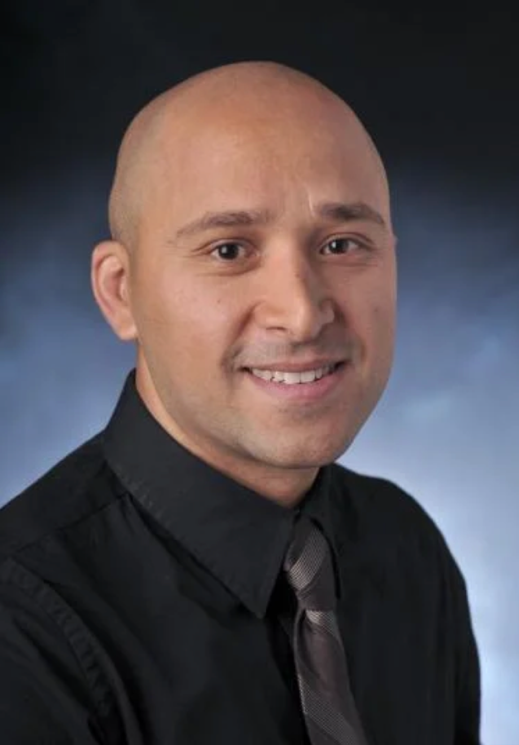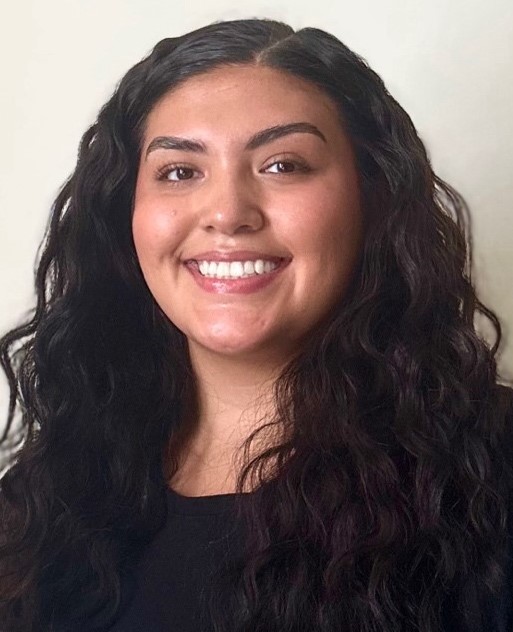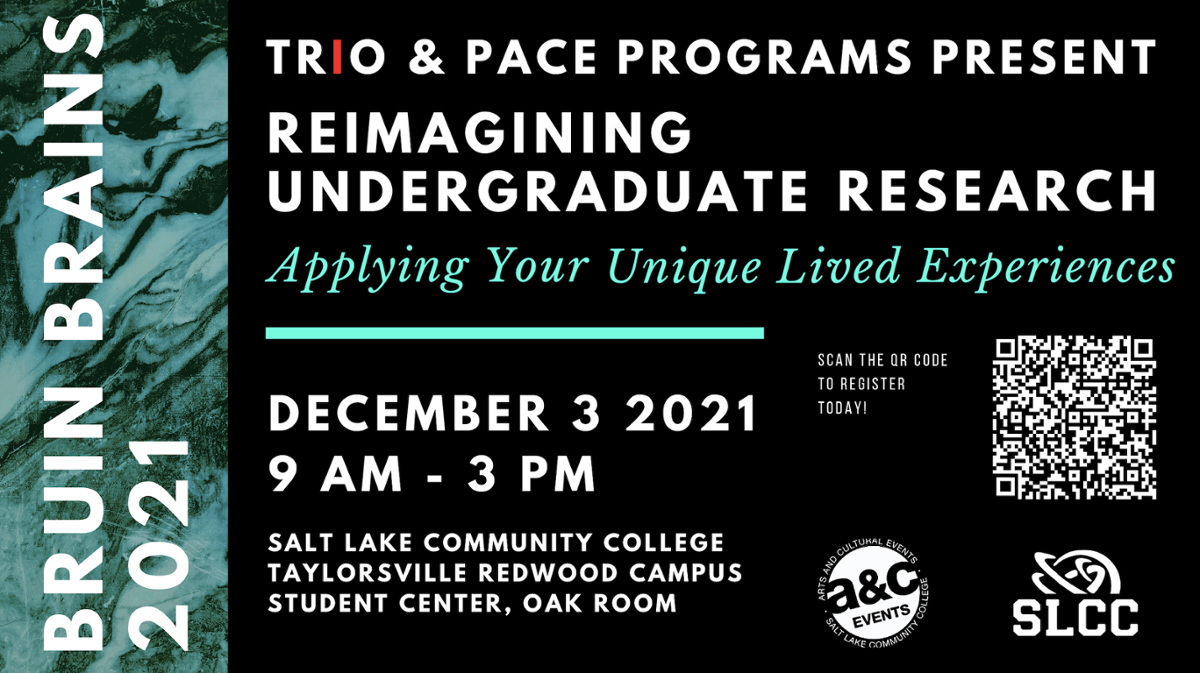Past Conferences
Bruin Brains 2024
Research Conference
Welcome to the 9th Annual Bruin Brains Research Conference!
Bruin Brains is an annual SLCC TRIO Programs student-led research conference that is intended to support first generation college students and inclusivity in undergraduate research!
Register HereConference agenda
Tuesday, December 3rd, 2024 | 9 a.m.-2 p.m.
Taylorsville Redwood Campus, Student Center Building, Oak Room
| Time | Event |
|---|---|
| 9 a.m. - 9:45 a.m. | Check In & Light Refreshments |
| 9:45 a.m. - 10 a.m. | Housekeeping & Opening Remarks |
| 10 a.m. - 10:45 a.m. | Morning Guest Speaker- Dr. Enrique Lopez |
| 11 a.m. - 12:30 p.m. | Poster Session/Demonstration/Tabling/Oral Presentation |
| 12:30 p.m. - 1:45 p.m. | Networking Luncheon |
| 1:45 p.m. - 2:00 p.m. | Closing Remarks |
Keynote Speakers
Dr. Enrique Lopez
Dr. Enrique López is an Associate Professor of STEM Education at the University of Colorado at Boulder. Dr. López was born and raised in Fresno, California where he studied chemistry at California State University, Fresno. His research examined atmospheric pollutants and their relationship to adverse health effects in the Central Valley. He then completed his Ph.D at Stanford University where his research explored barriers to Latino student success in lower-division chemistry. At CU Boulder, Dr. López has served as the Co-Director of the Center for Community-Based Learning and Research (CU Engage) from 2020-2024 and the co-director for the Aquetza: Youth Leadership, Education, and Empowerment Program. CU Engage supports programs and initiatives that work collaboratively with community groups to address complex public challenges. Aquetza is a summer program geared towards high school youth with strong ties to Chicano and Latino communities across Colorado to develop powerful connections between academics and community progress. Dr. López’s research seeks to draw on science learning and practices as a vehicle to fuel youths’ agency and community empowerment.
Nydia Strohm-Salazar
Nydia Strohm-Salazar (she/her) is from Greeley, Colorado. She is a 4th year undergraduate student double majoring in Ethnic Studies and Leadership & Community Engagement. She is also in her 4th year as a co-researcher in a YPAR research team conducting research on spaces on campus for BIPoC under-grads using PhotoVoice through the CU Engage program. She has an interest in student activism and advocacy work. Current, she’s the facilitator for the United Mexican-American Student (UMAS) y Movimiento Estudiantil Chicano de Aztlán (MEChA). After graduation, she hopes to continue working in community through teaching or non-profit work!
Explore SLCC Student Services
Faculty and staff are excited to support students and their efforts. Faculty and staff can also act as research mentors and advisors to SLCC students as students prepare to present at any conference!
Faculty can help students organize their thoughts, help coming up with a research question/topic, and resource referrals (e.g. journal articles and poster formatting).
Want research mentorship? Use the SME Research Catalog to connect with an SLCC Professor.
STEM Learning Resources
STEM Learning Resources provides free tutoring services and textbook checkout to students enrolled in various courses offered by the School or Science, Math, and Engineering. Tutoring is provided as a drop-in service only, except in certain circumstances.
InnovaBio Lab
InnovaBio® is a biotechnology contract research organization. We offer a low risk environment for students to develop productive lab skills while working on projects for real companies. The challenging research completed by our interns creates a valuable talent pool for Utah biotechnology companies.
Student Reading and Writing Center
The SLCC Student Writing & Reading Center helps you to succeed as a student by helping you to improve as a writer and a reader. We offer free, in-person and online consultations for all SLCC students enrolled in any class. We also have a variety of literacy resources for students and teachers.
Honors Program and Interdisciplinary Studies
SLCC's Honors program is a personalized, engaging, and transformative experience open to all AA/AS students. Students in the Honors Program will sharpen their academic and scholarly skills through several rigorous Honors Courses that fulfill 9 credits of General Education: 3 in Social Sciences (SS), 3 in Humanities (HU), and 3 in the second half of Composition (EN).
Funded by SLCC TRIO Programs and ACE (Arts and Community Events), TRIO SSS and TRIO STEM.
Bruin Brains 2022
Research Conference
Welcome to the 7th Annual Bruin Brains Research Conference!
Bruin Brains is an annual SLCC TRIO Programs student-led research conference that is intended to support diversity in undergraduate research!
Conference agenda
Friday, December 9, 2022 | 9 a.m.-3 p.m.
Taylorsville Redwood Campus, Academic and Administration Building (AAB), Room 135
| Time | Event |
|---|---|
| 9-9:45 a.m. | Check In & Light Refreshments |
| 9:45-10 a.m. | Housekeeping & Opening Remarks |
| 10-10:45 a.m. | Morning Guest Speaker- Dr. Camille Wilson |
| 11 a.m.-12:30 p.m. | Poster Session/Demonstration/Tabling/Oral Presentation |
| 12:30-1:30 p.m. | Networking Luncheon |
| 1:30-2:15 p.m. | Afternoon Guest Speaker - Travis Tu’ifua |
| 2:30-2:45 p.m. | Closing Remarks |
Abstract Submissions
Abstract submissions are due November 21, 2022. Submit your abstract here.
Need help getting started? View our quick guide to getting ready to present at Bruin Brains!
Guest Speakers
Dr. Camille Wilson
Dr. Camille Wilson is a professor of Educational Foundations, Leadership & Policy in the Department of Educational Studies at the University of Michigan (U-M). There, she also has the distinguished honor of being a University Diversity and Social Transformation Professor. Her research is interdisciplinary in nature. She explores school-family-community engagement and transformative leadership as they relate to urban education reform and policy. She is a qualitative researcher who draws upon critical race and feminist methodologies. She has worked individually and collaboratively to conduct research anchored in epistemological traditions that value how research participants make meaning, form identities, enact agency, and are helped or hindered as they interact with educational systems. Dr. Wilson is also the founding director of the Community-based Research on Equity, Activism, and Transformative Education (CREATE) Center at U-M's School of Education.
Travis Tu'ifua
Travis Tu’ifua is a PhD candidate in the department of human genetics at the University of Utah. Under the mentorship of Dr. Clement Chow, Travis’s thesis work is in functionally characterizing genetic modifiers of a rare congenital disorder of deglycosylation called NGLY1 deficiency. Travis received his bachelor’s degree in Biomedical Engineering at the University of Utah and an associate’s degree from the Salt Lake Community College. He is the father of three young girls and is married to the love of his life.
Explore SLCC Student Services
Faculty and staff are excited to support students and their efforts. Faculty and staff can also act as research mentors and advisors to SLCC students as students prepare to present at any conference!
Faculty can help students organize their thoughts, help coming up with a research question/topic, and resource referrals (e.g. journal articles and poster formatting).
Want research mentorship? Use the SME Research Catalog to connect with an SLCC Professor.
STEM Learning Resources
STEM Learning Resources provides free tutoring services and textbook checkout to students enrolled in various courses offered by the School or Science, Math, and Engineering. Tutoring is provided as a drop-in service only, except in certain circumstances.
InnovaBio Lab
InnovaBio® is a biotechnology contract research organization. We offer a low risk environment for students to develop productive lab skills while working on projects for real companies. The challenging research completed by our interns creates a valuable talent pool for Utah biotechnology companies.
Student Reading and Writing Center
The SLCC Student Writing & Reading Center helps you to succeed as a student by helping you to improve as a writer and a reader. We offer free, in-person and online consultations for all SLCC students enrolled in any class. We also have a variety of literacy resources for students and teachers.
Honors Program and Interdisciplinary Studies
SLCC's Honors program is a personalized, engaging, and transformative experience open to all AA/AS students. Students in the Honors Program will sharpen their academic and scholarly skills through several rigorous Honors Courses that fulfill 9 credits of General Education: 3 in Social Sciences (SS), 3 in Humanities (HU), and 3 in the second half of Composition (EN).
Funded by SLCC TRIO Programs and ACE (Arts and Community Events), TRIO SSS and TRIO STEM.
Abstract Submission
How to write an abstract for the Bruin Brains Research Conference!
An abstract should provide a short but clear statement of your research project. In a few sentences, it tells the reader the purpose of the paper, the methodology used, the results, and the importance of the results.
A well-crafted abstract will touch on the key elements of your project. These are described below. You’ll want to think through each element carefully, even though you may briefly touch on it in the abstract. The length of your abstract should be between 75-150 words.
Purpose
Explain the purpose of your project. State the primary objectives and scope of the paper. What is the rationale for your research? Why did you do choose the topic of research? Is the topic you are researching an ignored or newly discovered one? Why is it significant? What is your thesis statement?
Methods
Clearly state the methodology (techniques or approaches) used in your project. What is the method or “lens” you are using for analysis? What is the larger organizational structure?
Results
Describe your findings so far. What have you learned or revealed in your research? Give special priority new findings that contradict previous theories. (In other words, have there been any surprises?)
Discussion
Describe the implications of the results. Why are the results of your research important to your field? This is a time to emphasize the “so what” factor.
To review abstract examples by area of study.
For additional help, you can reach out to the wonderful ‘Student Reading & Writing Center”
Staff & Faculty Involvement
Visit the 2021 Research Conference page
Bruin Brains Undergraduate Research Conference
How can SLCC Faculty & Staff Get Involved with Bruin Brains?
Students will look to a reservoir of Faculty that can guide them towards:
1. Knowledge of research formats and norms specific to your field.
2. Awareness of current literature that informs your field, to help strengthen the foundations of their projects.
3. Take part in growing academic identity & competency beliefs surrounding research
Faculty or staff interested in taking on a mentor role would self-identify themselves to be included in a reference catalog, similar to the SME Symposium Research Catalog (example here: http://www.slcc.edu/stem/projects-and-research.aspx) that we would like to mimic and recreate but with a humanities, social sciences and other disciplines outside of SME concentrated topics.
Please fill out this form to let us know about your interest involvement with the Bruin Brains Undergraduate Research Conference. THIS FORM IS NOT A REGISTRATION LINK for the conference, rather, this form is geared for SLCC student services staff and Humanities & Social Sciences faculty (and other faculty outside of the School of SME) to help us streamline and centralize interested persons to better recruit and garner the type of involvement or commitment you would like to have within Bruin Brains. The Bruin Brains staff in TRIO programs will then reach out to you with further information and details.
History
Bruin Brains started as a student-driven research conference that focused on inclusion and diversity in research. TRIO STEM students were nervous to present at the SME symposium because of their limited experience and wanted an appreciative yet critical space to prepare their projects. Faculty feedback on posters/presentation, as central component to this event, was a key feature that students desired at the event. A guest speaker that focuses on diversity in STEM research was also a specific component on the event.
Since then, it’s expanded to include non-STEM student research and its mission is no longer to solely drive students to the SME symposium. Bruin Brains now also serves as a standalone undergraduate research opportunity for students to participate in, at no cost to them. Bruin Brains Research Conference is considered an interdisciplinary research conference with an emphasis on diversity and inclusion. Bruin Brains is largely funded by ACE and donations so we can include non-TRIO participants in the event.
Purpose
To provide students the opportunity to present research and receive feedback in preparation for the SME symposium or other undergraduate research opportunities while acknowledging the importance of diversity and inclusivity in research.
Target Participation Audience
TRIO students; SLCC students interested in research; Faculty.
Messaging
- You can do research.
- It is important that you engage in research early in your education.
- There are resources and support systems to help.
- Your identity and unique lived experiences are salient qualities that positively contribute to your research.
Faculty commitment
Similarly, to the SME faculty listed in the research catalog, TRIO would like to be able to refer students to faculty for mentorship/guidance on their research projects. Realizing this is an extra commitment that faculty would take on, we’d need faculty to self-identify themselves as willing to provide support for Bruin Brains projects. Support for these projects usually looks like helping students organize their thoughts, help coming up with a research question/topic, and resource referrals (e.g. journal articles and poster formatting). Ideally, TRIO would like to create a referral catalog similar to the SME research catalog that includes faculty from different schools outside of SME.
How to get your students involved
TRIO will create a Bruin Brains landing page that has a registration link and event details. TRIO will share the link once details are finalized. All participants must register for the event whether or not they are presenting research. Bruin Brains happens during Fall semester, typically the last week of Nov. or first week of Dec.
To get involved, contact the TRIO Programs department or the Program Managers individually -- Tanasia Valdez, Program Manager over TRIO-STEM or Mikaela Mokofisi, Program Manager over TRIO Student Support Services (SSS).
TRIO Programs Main Office Line: 801-957-4089
Bruin Brains TRIO Staff
Tanasia Valdez
TRIO STEM Program Manager
tanasia.valdez@slcc.edu
Office: 801-957-4827
Mikaela Mokofisi
TRIO SSS Program Manager
mikaela.mokofisi@slcc.edu
Office: 801-957-4334
Adrienne Howell
TRIO SSS Advisor
adrienne.howell@slcc.edu
Office: 801-957-4628
Maricela Hernandez
TRIO STEM, Advisor
maricela.hernandez@slcc.edu
Office: 801-957-4467
Welcome to the 6th Annual Bruin Brains Research Conference!

View Event Program
Conference Agenda
Friday, December 3, 2021 | 9 a.m.-3 p.m.
Taylorsville Redwood Campus, Student Center, Oak Room
| 9:00 am - 9:45 am | Check In & Light Breakfast |
| 9:45 a.m. – 10:00 a.m. | Housekeeping & Opening Remarks |
| 10:00 am - 10:45 am | Morning Guest Speaker- James Negus |
| 11:00 am - 12:30 pm | Poster Session/Demonstration/Tabling/Oral Presentation |
| 12:30 pm - 1:30 pm | Networking Luncheon |
| 1:30 pm - 2:15 pm | Afternoon Guest Speaker - Alan Pelaez Lopez |
| 2:30 pm - 2:45 pm | Closing Remarks |
2021 Guest Speakers
Bruin Brains is an annual SLCC TRIO Programs student-led research conference that is intended to support diversity in undergraduate research!

James Negus
James Negus is currently pursuing his Ph.D. in astrophysics at the University of Colorado Boulder. He earned his B.A. in physics, with a specialization in astrophysics, from the University of Chicago in 2013.
At CU Boulder, he collaborates with Dr. Julie Comerford and Dr. Francisco Müller Sánchez to study the properties of supermassive black holes. Specifically, he analyzes Active Galactic Nuclei utilizing the Sloan Digital Sky Survey, a major multi-spectral imaging and spectroscopic redshift survey compiled using a dedicated 2.5-meter wide-angle optical telescope at Apache Point Observatory in New Mexico.
In his spare time, he enjoys stargazing with his 8'' Dobsonian Telescope in the Rockies and hosting outreach events at the Fiske Planetarium and the Sommers Bausch Observatory in Boulder, CO. He has also authored two books with Enslow Publishing (Mysteries of Space: Black Holes Explained and Mysteries of Space: Supernovas Explained).
Join this session
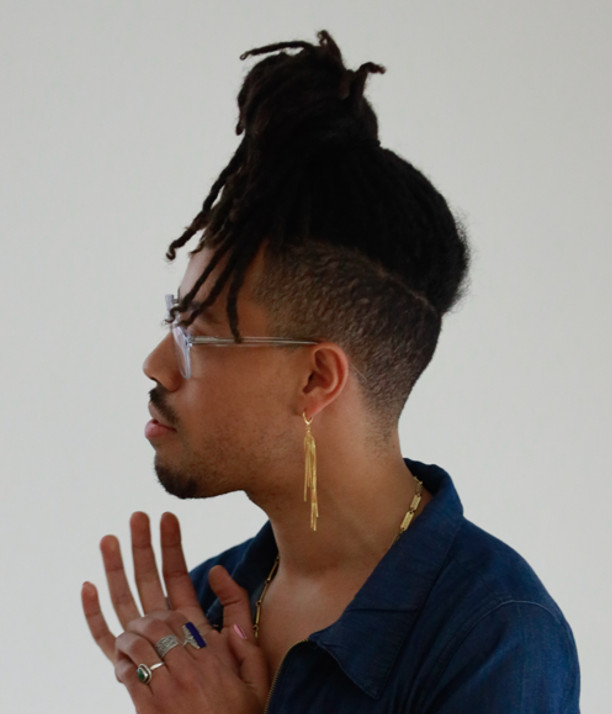
Alan Pelaez Lopez
CRG Research Scholar, Alan Pelaez Lopez is an adornment artist and a writer from the southern coast of Oaxaca, México. At Berkeley, Alan is pursuing a Ph.D. in Comparative Ethnic Studies, where they examine the ways in which undocumented Black immigrants create art spaces as a form of political protest that resist notions of Black citizenship and illegality. Alan’s poetry and non-fiction essays are influenced by growing up undocumented in the hoods of Boston and New York City. Their work can be found in Everyday Feminism; TeleSur; The Feminist Wire; Black Girl Dangerous; Fusion Magazine; A Quiet Courage, and more. Alan coordinates the CRG Arts & Humanities Initiative.
Join this session
Tabling Information Resources Session
Faculty and staff are excited to support students and their efforts. Faculty and staff can also act as research mentors and advisors to SLCC students as students prepare to present at any conference!
Faculty can help students organize their thoughts, help coming up with a research question/topic, and resource referrals (e.g. journal articles and poster formatting).
Explore SLCC Student Services
Faculty and staff are excited to support students and their efforts. Faculty and staff can also act as research mentors and advisors to SLCC students as students prepare to present at any conference!
Faculty can help students organize their thoughts, help coming up with a research question/topic, and resource referrals (e.g. journal articles and poster formatting).
Want research mentorship? Use the SME Research Catalog to connect with an SLCC Professor below!
McNair Scholars Program, Westminster College
Preparing academically talented undergraduates today, to change the face of higher education tomorrow.
The McNair Scholars Program is a federally funded effort to increase the number of students from underrepresented groups who go on to graduate study. The program is named after Ronald E. McNair, an African-American physicist and NASA astronaut who died in the Challenger explosion in 1986.
The Westminster College McNair Scholars Program draws students from 3 campuses: Westminster College, Salt Lake Community College, and College of Southern Idaho. By encouraging and supporting qualified students through undergraduate school and the transition to graduate school, the ultimate goal is to increase faculty diversity in colleges and universities.
STEM Learning Resources
STEM Learning Resources provides free tutoring services and textbook checkout to students enrolled in various courses offered by the School or Science, Math, and Engineering. Tutoring is provided as a drop-in service only, except in certain circumstances.
InnovaBio Lab
InnovaBio® is a biotechnology contract research organization. We offer a low risk environment for students to develop productive lab skills while working on projects for real companies. The challenging research completed by our interns creates a valuable talent pool for Utah biotechnology companies.
Student Writing and reading Center (SWRC)
The SLCC Student Writing & Reading Center helps you to succeed as a student by helping you to improve as a writer and a reader. We offer free, in-person and online consultations for all SLCC students enrolled in any class. We also have a variety of literacy resources for students and teachers.
Honors Program and Interdisciplinary Studies
SLCC's Honors program is a personalized, engaging, and transformative experience open to all AA/AS students. Students in the Honors Program will sharpen their academic and scholarly skills through several rigorous Honors Courses that fulfill 9 credits of General Education: 3 in Social Sciences (SS), 3 in Humanities (HU), and 3 in the second half of Composition (EN).
Funded by SLCC TRIO Programs and ACE (Arts and Community Events).
Bruin Brains is an annual SLCC TRIO Programs student-led research conference that is intended to support diversity in undergraduate research!
Please use the links below to navigate the virtual conference throughout the event.
Welcome & Guest Speaker
10 A.M. – 11 A.M.
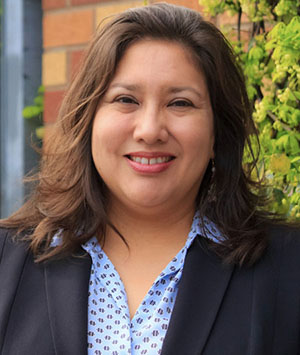
Dr. Myra Parker
Research with Tribal Colleges and Universities: Cultural Adaptations for Improved Interventions Among Diverse Communities.
Myra Parker (Mandan-Hidatsa-Cree), Ph.D., J.D., is an associate professor in the Center for the Studies of Health and Risk Behavior in the Department of Psychiatry and Behavioral Sciences, in the University of Washington School of Medicine. She also serves as the director for Seven Directions: A Center for Indigenous Health. Dr. Parker received her B.A. in Human Biology from Stanford University, a J.D. and M.P.H. from the University of Arizona in 2001 and 2002, respectively, and a Ph.D. in Health Services from the University of Washington School of Public Health in 2010. Dr. Parker has worked for over ten years on tribal public health program implementation, and coordination with tribal communities in Arizona, Idaho, and Washington, as well as with tribal colleges and universities across the United States. Her research experience in public health involves Community Based Participatory Research, cultural adaptation of evidence-based interventions, and disparities research. As an enrolled member of the Mandan and Hidatsa tribes, she is aware of the historical health practices and misconduct perpetuated on tribes in the United States, as well as other minority and disenfranchised populations. Her background in law and policy has informed a broader understanding of the principles of ethics as well as honed her skills in identifying methods to address the disparities in research control and access through the use of formalized agreements.
Research Poster Presentation Session
11:20 A.M. – 12 P.M.
This breakout is a student research poster session. A poster presentation is a way to communicate your research or your understanding of a topic in a short and concise format. It usually includes two elements - a poster and a brief explanation. Please use the links below to ask the presenter questions about their individual projects.
Megan Luetchford
Title: Research to Prevent Cyberbullying in Middle School Aged Kids.
Summary: My name is Meg, I have conducted research to help educate parents of middle school students on the rising issue of cyberbullying. My research covers the effects and warning signs of cyberbullying. As well, I will teach parents about the guidelines and how to use various social media platforms (Instagram and Snapchat) to ensure their children are safe online.
Zachary Knettles
Titled "How to Be a Big Boy"
It is a theoretical approach to mitigating bullying in young boys, kindergarten age, by working on a slight deconstruction of hegemonic masculinity. I am proposing a simple acronym for teachers to help use on a poster that gives boys a way to facilitate their own safe space to have conversations about emotions and feelings. It is a basic approach to introducing the "if this then that" style of conversation and problem solving to an age group that is entering gender typecasting where it is not promoted for them to talk about feelings, especially hurt ones. Not only does this help boys feel safer to talk about their emotions, it helps to not put other boys in the box of being a bully or bad kid, because they too are learning how to process and support emotions with their peers.
Tanya-Lynn Faupula
Title: Perceived Mental Health of People of Color
In my previous research, I noticed that higher percentages of POC tended to score themselves higher on the negative emotions’ scales more often than their white counterparts. I’ve also observed that mental health isn’t a common topic of conversation in many communities of color. Many of the participants from my past project were POC that I know personally that also deal with mental health disorders and this project helped open up discussions with friends that were either embarrassed about or didn’t know where to seek help. My idea was to put together a survey that participants would answer anonymously. I want to show common experiences between formally-diagnosed, self-diagnosed, and non-diagnosed folks. The goal of my project is to continue to open up these discussions and possibly help someone have the courage to seek help. I also want to include information on some affordable/accessible resources and mental health professionals of color as part of my conclusion (possibly using a QR code).
Jessamyn Gofberg
Title: Cyberbullying
My project is focused on exploring cyberbullying. Specifically, what cyberbullying is, the effects, and what we can do to prevent and help those who have been cyberbullied. My project includes a flyer to advertise an zoom meeting held by a social worker to discuss what cyberbullying is, the effects, and what parents and teachers can do. My project includes a PowerPoint on that information. This presentation is a PowerPoint to show kids, aged 10-14, information to educate themselves about cyberbullying. In the future, the intended audience for the presentation will be children and adolescents, placing special emphasis on the importance of empathy and how that can impact cyberbullying.
Karlus Pulley
Title: Comparing Piano Playing Kinesthetics: Composed Works vs. Freestyle
In this experiment a detailed analysis of the motion of the hand/wrist while playing the piano was conducted. Five songs were played that were already composed works and five songs played off the top of the head were analyzed. The study was of the motion of the right hand while playing. An accelerometer was attached to the hand to collect data at 20 Hz. Using numerical methods, the kinetics of the hand/wrist were calculated, and the smoothness and cyclical patterns were analyzed. The analysis looked for major differences between the two types of playing.
Michael Sawyer
Title: Hazing
My research presentation is about bullying, specifically focusing on the concept of hazing. This is a PowerPoint presentation and it is information about hazing at colleges for students who are going to be going to a University or another college out of high school. It is a 7 to 10 minute presentation. The presentation is intended to bring awareness to hazing.
Ozzie Lacey Spor-Ockey
Title: Salivary Analysis of Pet Reptiles Experiment
Summary: My experiment was to find and compare the amounts of bacteria in the saliva of three different species of pet reptiles based on their diet. I had chosen these three different kinds of reptiles based on what is most owned in the U.S. Ball Pythons Python regius (carnivores), Bearded Dragon’s Pogona vitticeps (omnivores) and Leopard Gecko’s Eublepharis macularius (insectivores).
Nadia Yahyapour
Title: Yogurt Bacteria: What are they and how do they survive best?
Summary: My research idea came from my biology 1615 class where I looked at yogurt under a microscope to find bacteria in it. The yogurt provided to us was a fruit yogurt and we found no bacteria in it, but the next week I took some homemade yogurt with me to school to test it under the microscope to find bacteria in it. I am doing this research project to find information about bacteria survival with different environments such as yogurt type, temperature, and light. So far, I have found primary research about yogurt bacteria such as lactobacillus and their survival in the human gut. I have also found primary research about lactobacillus acidophilus, a yogurt bacteria, and its survival rate in colder temperatures.
Brock Smith
Title: Verbal Bullying
I have written a program directed at addressing verbal bullying within the 5th grade of a local elementary school. My project has been expanded on from an initial social work course project. Thank you and I look forward to presenting.
Devon Robertson
Title: Sugar & spice, no more slice: End female genital mutilation.
My presentation explains FGM and the different types of mutilations that girls can experience. It also highlights how FGM is not just a foreign issue, but happens right here in the U.S., and how we can help bring an end to the harmful practice.
Caysie Bakke
Title: Environmental Justice
My project is a road trip though The United States that shows how places that are the most polluted/contaminated are in areas where most minorities and low income communities reside.
Shirley Paxtor
Title: Resiliency in Mixed Status Families
I am presenting on Mixed-Status Families in higher education. I am focusing on the challenges that students who are US citizens must encounter while they go to higher education and the barriers in micro and macro levels they got through to get an education.
Sophie Silverstone
Title: U R O.K. App - A Teacher's Resource for Classroom Awareness
Remember the "How are you feeling today?" chart? U R O.K. brings that chart up to date using an app! Teachers can use this resource for their classroom, where students can name their emotions, what is making them feel different, and help teachers track classroom emotions. The goal of this app is to decrease bullying by helping teachers identify students' emotions, stressors, power imbalances and what makes them feel different from the rest of the class so they can be aware of underlying dynamics that contribute to the atmosphere where bullying occurs. The app will help teachers see classroom trends over time and so they can lead discussions about different emotions and overall help students know it's okay to experience these complex emotions that occur in everyday life.
Rosa Quintero
Title: Bullying Prevention
According to the website stopbullying.gov, bullying happens among school aged children and is defined as an unwanted aggressive behavior that can be repeated. Bullying can have long lasting negative effects for those who get bullied. The emphasis of my project was to develop a program/activity that focuses on bullying prevention. My goal was to teach kindergarten students the meaning of bullying and things they can do to stop bullying.
Luz Tafolla
Topic: Bullying within minorities
I discuss how bullying goes on in a middle school filled with minorities. I will discuss a method that can be available for parents, students and staff. Also, how it will affect families and how they will be able to learn from it and bring families and students together.
Tabling Information Resources Session
1:20 P.M. – 2 P.M.
Scott Woodie
Biodiversity od Microorganisms in a Montane River
This study is a determination on whether or not the Jordanelle Dam effects the biodiversity of microorganisms in the Middle Provo, and if so, is the effect negative or positive. Using species richness, evenness, and the Shannon Index, I calculate and compare the biodiversity of sites above and below the Jordanelle Dam. These calculations are then used to determine the dam’s affect.
Elizabeth Weilenmann
Biodiversity population differences in Deer Creek Reservoir, versus the ecological environment of a duck pond in the same area.
Does the biodiversity of organisms differ in bodies of water with motorized usage, such as boats, jet skis, etc., versus water sources that do not have motorized usage?
Join this session:
Guest Speaker
12:40 P.M. - 1:25 P.M.
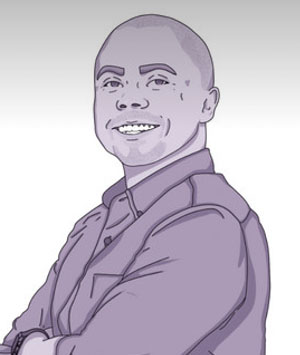
Dr. Steven Roberts
Racism: A Developmental Story
Steven O. Roberts is an assistant professor of psychology at Stanford University. He received his AA from the Borough of Manhattan Community College, his BS from New York University, and his MS and PhD from the University of Michigan. In his research, he attempts to identify and dismantle social inequalities, especially racial inequalities. He is from a first-generation and low-income background and believes that the best science happens among diverse groups of scientists.
Faculty and staff are excited to support students and their efforts. Faculty and staff can also act as research mentors and advisors to SLCC students as students prepare to present at any conference!
Faculty can help students organize their thoughts, help coming up with a research question/topic, and resource referrals (e.g. journal articles and poster formatting).
Want research mentorship? Use the SME Research Catalog to connect with an SLCC Professor below!
http://www.slcc.edu/stem/docs/research-and-project-based-learning-catalog-final-4-1-20.pdf
STEM Learning Resources
STEM Learning Resources provides free tutoring services and textbook checkout to students enrolled in various courses offered by the School or Science, Math, and Engineering. Tutoring is provided as a drop-in service only, except in certain circumstances.
https://slcc.webex.com/meet/santoshkiran.balijepallislcc.edu
InnovaBio Lab
InnovaBio® is a biotechnology contract research organization. We offer a low risk environment for students to develop productive lab skills while working on projects for real companies. The challenging research completed by our interns creates a valuable talent pool for Utah biotechnology companies.
https://slcc.webex.com/join/Lane.Lawslcc.edu
Student Reading and Writing Center
The SLCC Student Writing & Reading Center helps you to succeed as a student by helping you to improve as a writer and a reader. We offer free, in-person and online consultations for all SLCC students enrolled in any class. We also have a variety of literacy resources for students and teachers.
https://slcc.webex.com/meet/clint.gardnerslcc.edu
Honors Program and Interdisciplinary Studies
SLCC's Honors program is a personalized, engaging, and transformative experience open to all AA/AS students. Students in the Honors Program will sharpen their academic and scholarly skills through several rigorous Honors Courses that fulfill 9 credits of General Education: 3 in Social Sciences (SS), 3 in Humanities (HU), and 3 in the second half of Composition (EN).
https://slcc.webex.com/meet/Kathy.Tran-Petersslcc.edu
Funded by SLCC TRIO Programs and ACE (Arts and Community Events).
